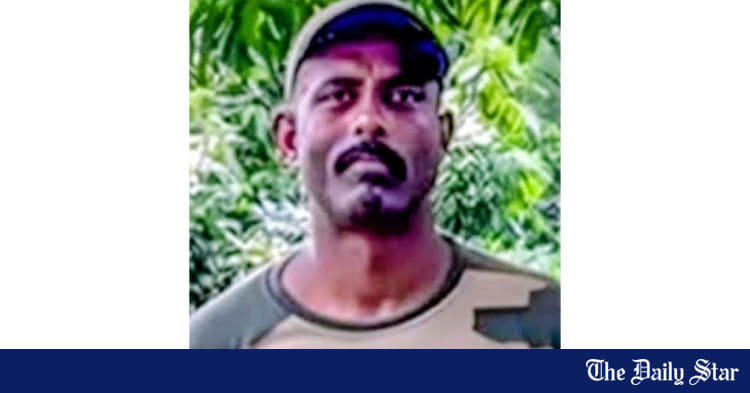Saif
Senior Member
- Joined
- Jan 24, 2024
- Messages
- 16,093
- Likes
- 8,059
- Nation

- Axis Group


BGB hands over detained BSF member in Lalmonirhat
Indian border guard crossed 200 yards into Bangladesh, says BGB
BGB hands over detained BSF member in Lalmonirhat
Indian border guard crossed 200 yards into Bangladesh, says BGB

Photo: Collected
Border Guard Bangladesh (BGB) handed over a member of Indian Border Security Force (BSF) this evening, hours after he was detained along Angarpota border under Patgram upazila of Lalmonirhat for entering Bangladesh illegally.
The detained BSF member is Bed Prokash, a constable of the Arjun BSF Camp under the 174 BSF Battalion of Mekhliganj police station in Cooch Behar district of West Bengal, India.
According to the BGB, Prokash crossed the zero line of the Bangladesh-India border and entered about 200 yards inside Bangladesh while chasing Indian cattle smugglers.
At that time, members of the Angarpota Camp of Rangpur 51 BGB Battalion, who were on border patrol duty, detained him from the Angarpota border around 4:30am today.
At the time of detention, BGB members seized one shotgun, two rounds of ammunition, one wireless set, and an Android mobile phone from his possession.
He was handed over to BSF through a flag meeting held near the Border Pillar No. 812 at Tinbigha Corridor area this evening, added the BGB sources.
Confirming the matter, Lt Col Selim Aldin, commanding officer of BGB Battalion-51 in Rangpur, said the BSF authorities expressed regret and apologised for the incident of illegal intrusion by their member into Bangladesh territory.
"BGB members are always vigilant to prevent all kinds of crimes along the border," he added.
Indian border guard crossed 200 yards into Bangladesh, says BGB
Photo: Collected
Border Guard Bangladesh (BGB) handed over a member of Indian Border Security Force (BSF) this evening, hours after he was detained along Angarpota border under Patgram upazila of Lalmonirhat for entering Bangladesh illegally.
The detained BSF member is Bed Prokash, a constable of the Arjun BSF Camp under the 174 BSF Battalion of Mekhliganj police station in Cooch Behar district of West Bengal, India.
According to the BGB, Prokash crossed the zero line of the Bangladesh-India border and entered about 200 yards inside Bangladesh while chasing Indian cattle smugglers.
At that time, members of the Angarpota Camp of Rangpur 51 BGB Battalion, who were on border patrol duty, detained him from the Angarpota border around 4:30am today.
At the time of detention, BGB members seized one shotgun, two rounds of ammunition, one wireless set, and an Android mobile phone from his possession.
He was handed over to BSF through a flag meeting held near the Border Pillar No. 812 at Tinbigha Corridor area this evening, added the BGB sources.
Confirming the matter, Lt Col Selim Aldin, commanding officer of BGB Battalion-51 in Rangpur, said the BSF authorities expressed regret and apologised for the incident of illegal intrusion by their member into Bangladesh territory.
"BGB members are always vigilant to prevent all kinds of crimes along the border," he added.















































